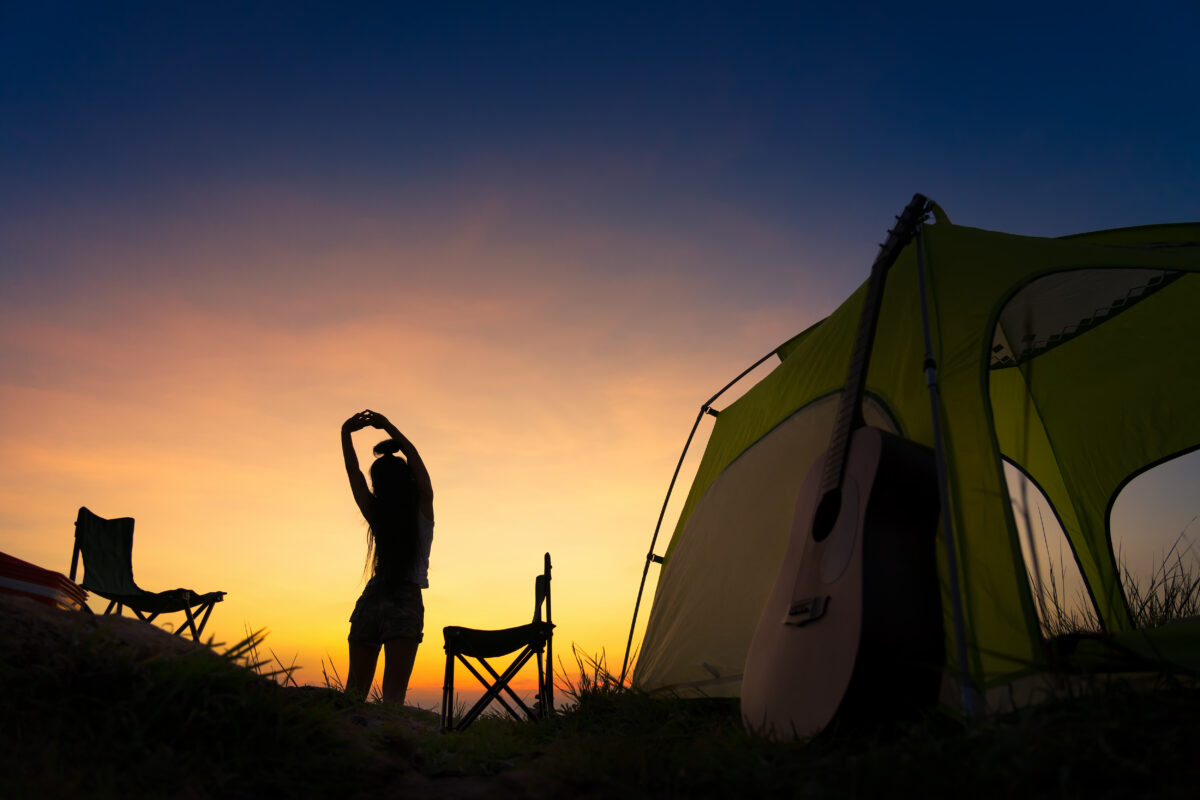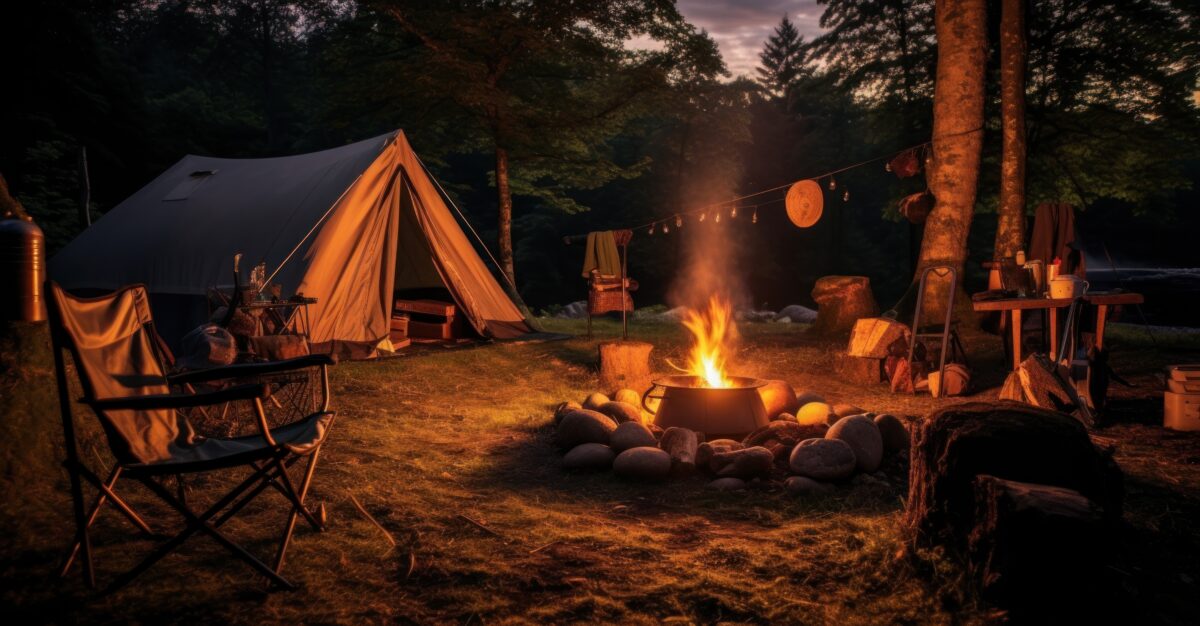Summer is over and it is time to prepare for the challenging winter season for a camper. Winterization is essential to prevent expensive vehicles from freezing because of extreme coldness that may ruin the plumbing systems, batteries, and other parts of the cars. This guide will answer all your questions about how to winterize a camper including how to use antifreeze, the RV winterizing checklist, and tips for how to winterize RV and camper trailer water heaters and other specific camper trailer winterizing instructions.
Why Winterizing Your Camper is Important
Cold weather poses a serious threat to your camper because water from a water heater can freeze in the pipes and damage the heater or create costly repairs. The process of winterizing your camper protects its longevity, enhances resale at market value, and serves to safeguard the camper for use in the next camping season. Among the steps in winterization are draining the water systems and adding anti-freeze and protecting numerous components from the coldness.
Steps to Winterize a Camper
1. Clean and Inspect Your Camper
The pre-winter care of the camper involves cleaning and proper inspection of the camper. This step ensures that your camper is well maintained and is in a proper condition to be left off for the next few months.
- Exterior Cleaning and Inspection: Wash the exterior to clean the shell from the dirt and foreign objects. Check for any damages to the walls and flooring like cracks and leaks and seal to avoid flooding during winter.
- Interior Cleaning: Clean the inside of the food container, throwing away all food items and sucking all the food crumbs. Inspect the internal components for signs of wear and tear as well.
- Seal and Roof Inspection: Look for all the gaskets around windows, doors and the roof. Identify the areas that are showing so signs of wear and tear and reseal it to avoid leaks.
2. Drain the Water System
It is important to drain the water from the system to ensure that there is no water that would get frozen.
- Drain Freshwater Tank: Turn on tap handle that releases water and locate the drain valve to open it also to release all water. It is also important to empty the water of the lines by turning on all the taps in the house and also both the inside and outside showers.
- Drain Grey and Black Water Tanks: Dispose of these tanks appropriately by draining them into an appropriate disposal area. It is also advisable to clean the tanks using a tank cleaner after draining to avoid odors from the tanks.
- Drain the Water Heater: Shut the water heater connection and allow it to cool except in emergencies. Pour the content of the tank through an open drain.

3. Winterizing RV Water Heater
Water heater is a vital component of the RV body that requires an extra level of care during winterization.
- Turn Off the Water Heater: Make sure to drain the water heater only when disconnected from the power source and the appliance has cooled down.
- Drain the Water Heater Tank: Bleed the system by removing the drain plug and the pressure-relief valve and allow water to drain out of the entire system.
- Bypass the Water Heater: A bypass kit can be installed if it is not already fitted to the camper. This step is crucial to prevent antifreeze contaminating the water which goes into the water heater tank.
4. Using Antifreeze
Killing off any remaining water inside the pipes using RV antifreeze minimizes the risk of frozen pipes and cracked water hoses.
- Bypass the Water Heater: It is important to pass the antifreeze to the water heater to protect against freezing and to maintain the heater.
- Pump Antifreeze into the System: There is a type of a converter kit for the water pump or hose with the adapter which can be connected to internal water pump to introduce the antifreeze into the system.
- Open Faucets and Valves: For the first faucet turn the handle slowly till pink antifreeze peeps out from the faucet. Do this for the kitchen Tap, bathroom Tap shower and any outdoor Tap.
- Flush Toilets: Use a small amount of water to flush the toilet until the pink antifreeze starts coming out to show that the lines and the bowl are also prepared.
5. Winterizing RV Appliances and Components
Make sure all the appliances and their parts are not exposed to cold.
- Refrigerator: Wash and thaw the refrigerator. Instead, leave the door ajar slightly to avoid mold and nasty smell.
- Batteries: Unplug and take out of batteries. Keep them in a fridge or other dry and cool place to prevent freezing them. Batteries should also be recharged from time to time to keep their capability.
- Propane Tanks: Weather strip and remove regulators. Try to keep them in ventilated areas with no possibility of fire.
- Electrical Systems: It is important to turn off all electricity sources and disconnect the camper from any power outlet.
Detailed RV Winterizing Checklist
Here’s a detailed checklist to help you ensure every step of the winterization process is completed:
Clean Exterior and Interior:
- Wipe the exterior then also inspect it.
- Wash internal parts including food residues.
- Vacuum and inspect inside if the pack is damaged.
Inspect and Seal:
- Slip inside and check the seals at the windows and doors and spaces above the roof.
- It might be necessary to open the plastic seal and reseal those areas that have become worn out.
Drain Water Systems:
- Drain freshwater tank.
- Drain grey and black water tanks if applicable.
- Stormy weather: draining the grey and black water tanks.
- Drain the water heater.

Tips for Winterizing Specific Camper Types
Winterizing a Camper Trailer
Winterizing a camper trailer follows similar rules as other campers but there are some specific things that need to be considered. On the first stage, the hitch and the tires should be checked. Make sure that the hitch is up to par and it needs to be greased in order to avoid rust and possible gapping of the mechanisms. Try to fill tires with the correct amount of pressure and for the tires exposed to the winter elements, try using a cover. Another important parameter of the train is the stabilizer of the trailer. In addition, it is recommended to use stabilizing jacks as they would secure the trailer and keep it level so that it will not shift or sustain any damage while in storage. Finally, it is also important to put an RV cover on the camper to protect it from weather elements. This will help prevent the accumulation of snow and ice and lose debris on the trailer’s cover, which may harm the trailer’s surface or cause moisture inside the trailer. To protect your camper trailer in its best condition, you need to take these additional measures.
Winterizing an RV
For RVs of medium and upper size, there are more systems and components that require attention during the winterization process. One of the checks that should be carried out includes checking the seals around slide-outs. These seals must be looked upon and lubricated to avoid any form of leaking and to make sure it operates smoothly. It is also important to protect the awnings by retracted them and making sure they are fully dry before storing the RV. Another cover to consider using is the awning cover, which provides an extra layer of protection against the elements. If your RV uses an engine or generator then follow recommendations for the winterization practices. This often entails; adding a fuel stabilizer to the fuel to prevent it from degrading; changing the oil to keep the engine and generator in optimal working condition to prepare it for the winter season. Following the steps mentioned above will make sure the larger RV is not damaged during the cold winter season.
Common Mistakes to Avoid
Some of the errors to avoid while winterizing your RV are:A major oversight is failing to install the water heater bypass. Failure to bypass the water heater may also result in excessive use of antifreeze which can damage the heater. Another mistake is the use of regular household antifreeze instead of the one that is specially made for RV; the latter is non-toxic and safe for your plumbing system. It is also crucial to empty all tanks, lines, and components of water since any of this water that remains can freeze and cause substantial damage. Failing to check and maintain the roof and other joints is another mistake that homeowners often make, which results in water penetration through the roof during winter. Moreover, failing to properly store and charge the battery can lead to a dead battery by spring. One has to remove the batteries and keep them stored in a cool, dry place and keep charging them also occasionally. Failing to adhere to these tips can result in the camper sustaining damages from the winter season.
Advanced Winterization Tips
For those looking to go above and beyond basic winterization, consider these advanced tips:For those looking to go above and beyond basic winterization, consider these advanced tips:
- Install a Heated Water Hose: Another useful camping accessory that one might consider getting is a heated water hose that can be used during winter so as to avoid freezing of water lines.
- Use RV Skirting: Some insulation can also be added especially around the base of your RV to protect the plumbing from outside cold.
- Invest in a Dehumidifier: A small portable dehumidifier to be kept permanently on a camper may help to reduce moisture and mold.
- Monitor Weather Conditions: For campers that are left outside, keep an eye out on the weather and inspect the camper after each harsh weather occurrence.
Conclusion
Preparation for camping in cold climates is necessary to keep the camper in good shape. Following these detailed instructions and using the provided checklist will ensure that you are able to effectively prepare your camper for the cold season. Winterizing your camper can be a great way to preserve your RV for years down the road. Happy camping!

Leave a Reply
You must be logged in to post a comment.